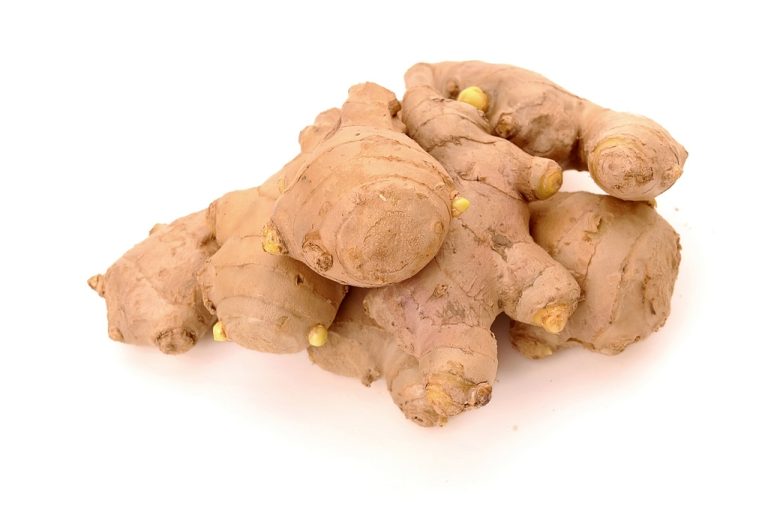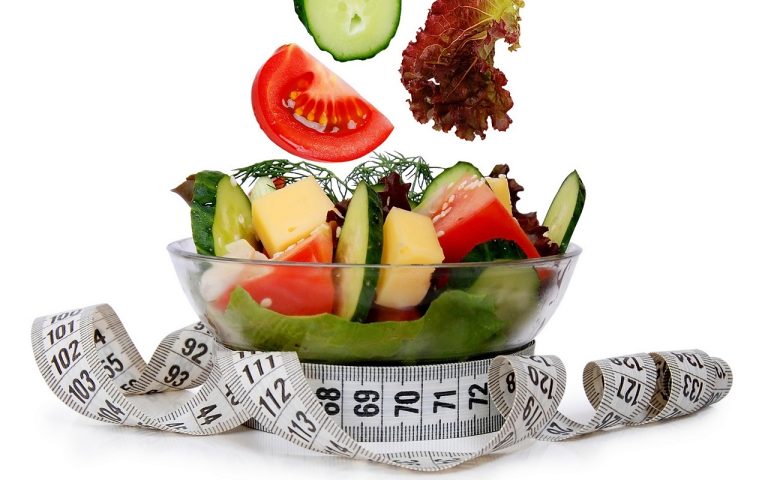You can be vegan for many different reasons – animal welfare, environmental protection, health and also the desire to lose a few pounds can be a motivation. But do you really lose weight with a vegan diet? How does it work and what should you pay attention to?
Can you lose weight on a vegan diet?

Yes, you can lose weight with a vegan diet – but there is no guarantee. Because theoretically you can lose weight with any diet – if you don’t just eat chocolate, chips, cola and ready meals.
But the vegan diet has clear advantages: It often includes a diverse and varied selection of vegetables, legumes, fruit, cereals and whole grain products, nuts, seeds and vegetable oils. A study showed: A vegan diet could mean 8.1 million fewer deaths per year. According to the researchers, more than half of these avoided deaths could be attributed to reduced consumption of red meat (beef, pork, sheep, goat) and about a quarter to increased fruit and vegetable consumption.
In addition, vegans often live healthier lives in general: They smoke less often, drink less alcohol and exercise more. To what extent diet is decisive here, or whether healthy people generally opt for a vegan diet more often, is not known exactly.
Losing weight vegan: what do you have to pay attention to?
Long-time vegans know their way around and know what to look out for. But if you are just starting out on a vegan diet, you should consider a few things. Some nutrients are not included in a vegan diet, or only when you are familiar with them. These include vitamin B12, vitamin B2, vitamin D, protein, calcium, iron, iodine, zinc, selenium and omega-3 fatty acids.
With the exception of vitamin B12 – which vegans should supplement or take in with the help of fortified toothpaste – it is possible to absorb these nutrients with a balanced, varied diet. However, one should consciously ensure that all nutrients are present in the diet.
The vegan nutrition poster or the vegan nutrition pyramid from the animal rights organization Peta can be helpful. In our article “Vitamins from plant sources”, you can find out which vitamins are in which vegan foods. A regular medical blood test is also useful, it shows possible deficiency situations.
Losing weight vegan: The energy balance is crucial
If you want to lose weight – whether vegan or not – you have to use more energy than you take in. That doesn’t mean you have to waste your time counting calories and starving yourself from now on. It often helps to gradually change small things and slowly strive for a healthier lifestyle.
How much energy you use varies from person to person and depends on body weight, body composition, gender, age, health, the temperature around us and, crucially, physical activity. There is little you can do to change most of these things – except for your physical activity. This means that if you want to lose weight, you have to move.
Nothing happens without movement
You don’t have to exercise five days a week – it’s often the small things that can make a big difference: climb the stairs instead of the escalator or elevator, walk or bike short distances, and go for a short walk during your lunch break .
Yes, even in winter. Remember, temperature also plays a role in energy consumption. The colder it is outside, the more energy your body uses to keep you warm. In addition, the cold air – and if you’re lucky, a few rays of winter sun (vitamin D) – is good for your health.
Try to integrate regular physical activity into your everyday life: maybe you like swimming, running, cycling, dancing or enjoy a team sport? Whatever your sport, plan time for it every week. If you have doubts about going through with it, then arrange to meet up with friends – you can motivate each other.
What am I actually eating?
Let’s get to the energy you absorb. It can clearly be influenced by your diet. And here, too, it is small steps that can make a big difference. A good way to find out where to start is by keeping a food journal (there are good food journal apps out there now too).
If you regularly write down what you eat, you’ll probably find a few things you can work on. Don’t try to eat as little as possible – it is especially important for vegans to eat enough. Be careful what foods you eat.
Clean eating: not just a trend
Eat as clean as possible, i.e. mainly unprocessed food! There are now plenty of finished products with too much salt and additives for vegans too. It’s better to ignore them and try to eat as much fresh and unprocessed food as possible: lots of things can be conjured up from vegetables, fruit, legumes, seeds, grains and nuts.
How about a homemade spread on freshly baked bread with hemp milk, almond milk or a smoothie and an energy ball for dessert? Vegan food accounts on Instagram offer a good source of inspiration.
Carbohydrates? Yes, but whole grain
Carbohydrates make you fat? Not necessarily. If you only eat croissants, white bread and sugar, you certainly won’t lose any pounds. But if you eat foods that have complex carbohydrates in them — like cereal, bran, beans, whole wheat pasta, whole wheat bread, brown rice, potatoes, vegetables, or soy products — your body will take longer to digest, your blood sugar won’t spike as much, and you will stay full longer. Also read the article on proper nutrition in the following box:
Healthy snacks instead of Cheat Day
Cheat Day is a trend that is particularly widespread on social networks and on YouTube: starving six days a week – and on one day pizza, fries, cola, chocolate, ice cream (and everything else that you have forbidden yourself) in cram yourself in. Such regular, planned binge eating is not a good idea.
It’s better to treat yourself to something every now and then. Delicious homemade brownies made from kidney beans, energy balls or homemade Nutella. The advantage of making it yourself: You can decide for yourself how much sugar you use.
Drink lots and lots!
In addition to food, drinks also play a role in weight loss. A very simple rule of thumb is: drink water, and drink enough water so that you never feel thirsty. With sweet drinks such as cola, sprite, iced tea, but also with juice and ready-made juice spritzers, you absorb unnecessary energy, so you should avoid these and drink water instead. You can drink the tap water in Germany without hesitation. If you can’t go without flavor, spice up your water with ginger, cucumber, herbs, or lemon.
Listen to yourself: intuition and mindfulness
What does this esoteric stuff have to do with losing weight, you might be wondering. Probably more than you think. Before you just start eating at the next meal, be careful and listen to yourself: Are you hungry or just hungry? Are you stressed or relaxed? Take your time to eat and be aware of your body. Celebrate the food and present it beautifully. Eating is a beautiful thing and we want it to stay that way for you. When you feel full, stop eating.
Incidentally, stress and weight are often linked: while some people hardly eat at all during stressful times, others stuff themselves with sugar and fat. Make sure to consciously relax every now and again in your everyday life, even short units – ten minutes after getting up, during your lunch break or just before going to bed – can help to lower your stress level.
Vegan lose weight with patience

Conclusion: Don’t think of the vegan diet as a diet that can help you lose a lot of pounds in a short period of time. It will not work. As soon as you eat like before, you have the pounds back on your hips. Instead, try to see your diet change as something long-term and use it! Try out new recipes, get inspired and discover the diversity of vegan nutrition. Give yourself and your body time to adjust, and don’t freak out about it.








